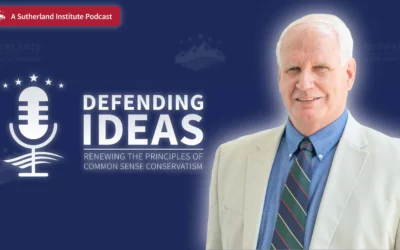
Written by William C. Duncan
March 24, 2022
On Monday, the Senate Judiciary Committee began hearings on the nomination of Judge Ketanji Brown Jackson to serve as a justice on the U.S. Supreme Court. In his opening statement Utah Sen. Mike Lee addressed a widespread desire that the hearings should remain civil. He said the “politics of personal destruction is not something we should ever aspire to.”
There is evidence that the nomination process has become politicized to an unprecedented degree.
For instance, there have been significant changes in recent voting patterns for nominees. Justice Stephen Breyer, whom Jackson would replace, was confirmed in 1994 with an 87-9 Senate vote, and Justice Ruth Bader Ginsburg, who was nominated the previous year, was confirmed 96-3. Ginsburg is the last justice to have been confirmed with over 90 senators voting in favor.
The last nominee to be defeated was Robert Bork, and some point to his contentious nomination hearing as signaling a change in the process of approving justices.
Others suggest the change is more recent, dating to the refusal of the Senate to consider the lame-duck nomination of Merrick Garland (who is now attorney general) in 2016.
Of the justices now serving, only three were approved with more than 60 votes in favor of their nominations: Chief Justice John Roberts (78-22) and Justices Sonia Sotomayor (68-31) and Elena Kagan (63-37).
In testimony to the Presidential Commission on the Supreme Court, Ilya Shapiro of the Cato Institute provides some important longer-term context. He notes that politics has always been part of the nomination process. Since the beginning of the Republic, “presidents have picked justices for reasons that include balancing regional interests, supporting policy priorities, and providing representation to key constituencies.”
The confirmation process has long been challenging as well:
Nearly half the presidents have had at least one unsuccessful nomination, starting with George Washington and running all the way through George W. Bush and Barack Obama. James Madison had a nominee rejected, while John Quincy Adams had one “postponed indefinitely” — you have to love that euphemism. Andrew Jackson was able to appoint Roger Taney only after a change in Senate composition, while poor John Tyler, a political orphan after the Whigs kicked him out of their party, had only one successful nomination in nine attempts. Most 19th‐century presidents had trouble filling seats, before we had a run from 1894 until 1968 where only one nominee was rejected, John Parker under Herbert Hoover in 1930. Since LBJ, all presidents who have gotten more than one nomination had one fail, except George H.W. Bush, Bill Clinton, and Donald Trump — who nonetheless had three of the most contentious nominations in our history.
Thus, “of 164 nominations formally sent to the Senate (counting each submission, even if the same person), only 127 were confirmed, a success rate of 77 percent.”
Shapiro argues that what is new is “couching opposition in terms of judicial philosophy.” This tends to make the conflicts insoluble, since presidents are unlikely to nominate someone who does not clearly share their judicial philosophy.
(Shapiro’s testimony includes lots of fascinating information and insights and is well worth reading in full.)
More foundationally, Congress may be to blame. By failing to address significant issues, leaving them to administrative agencies and the courts, the court’s role has taken on an importance far broader than the constitutional design would have suggested. As Sen. Ben Sasse argued in 2018:
Ultimately, because people can’t navigate their way through the bureaucracy they turn to the Supreme Court looking for politics. And knowing that our elected officials no longer care enough to do the hard work of reasoning through the places where we differ and deciding to shroud our power at times, it means that we look for nine Justices to be super-legislators. We look for nine justices to try to right the wrongs from other places in the process.
Whenever its genesis, the bruising confirmation debates of the past decades have clearly affected the nature of the confirmation hearings themselves. Nominees are extremely unlikely to say anything substantive about the work of the Supreme Court and even about the nominee’s philosophy about interpreting the law. As Shapiro notes, since 2005 “there’s been little revelation of personal opinions. The nominees speak in platitudes: Roberts and his judicial umpire, Sotomayor saying that fidelity to the law was her only guidepost, Kagan accepting that ‘we’re all originalists now.’”
So, don’t expect to be particularly enlightened by the confirmation hearings. That reality should probably concern us more than it does. It should provoke discussion about the hard questions concerning the role of judges, and of Congress.
More Insights
Read More
Protecting property rights against government overreach
While governments can continue to regulate land use, these regulations and fees must be justified by a government interest and proportional to the effect of the development’s impact on that interest.
Do we need to care about the Utah State Board of Education?
For any Utah voters who also feel like K-12 public education is headed in the wrong direction, learning about the candidates running for a seat on the Utah State Board of Education (USBE) is a wise choice this election season.
Defending education choice the right way
Education choice has exploded in popularity across the nation in recent years. So why does it remain a contentious point of debate in some parts of the country?


